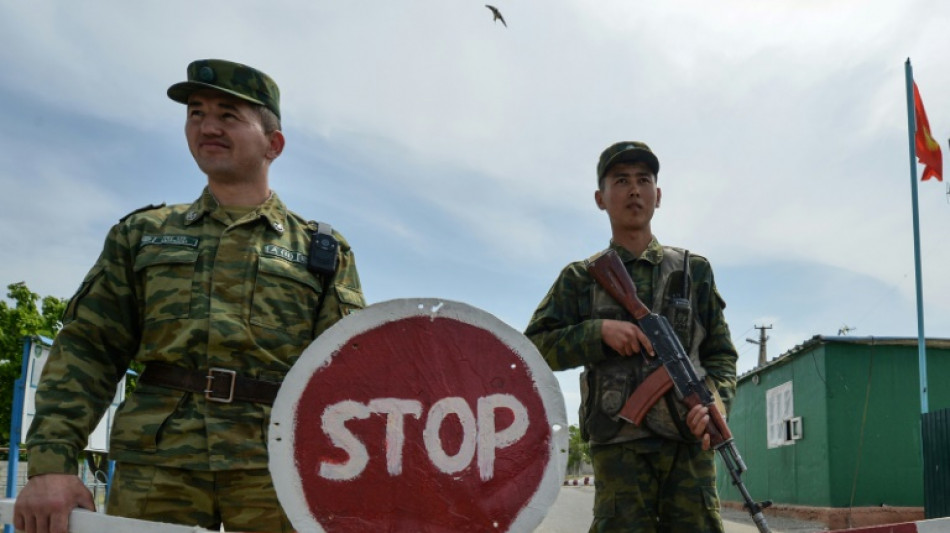

Kyrgyzstan says ceasefire reached with Tajikistan after lethal clashes
Kyrgyzstan said it had reached a ceasefire with Central Asian neighbour Tajikistan on Friday following the latest lethal flare up at the pair's contested border.
The violence that broke out Thursday evening was the bloodiest escalation between the countries since clashes that killed dozens last year.
Kyrgyz and Tajik communities along the contested border regularly clash over land and water supplies, with border guards often involved.
Tajikistan claimed late on Thursday that it had suffered "civilian and military" fatalities from the most recent exchanges of fire, but offered no further details.
Kyrgyzstan's national security committee said Friday that it had reached an agreement for "a complete ceasefire" with Tajikistan during a meeting at the border between provincial governors and border service representatives.
The neighbours also agreed to withdraw forces, coordinate patrols of the frontier and ensure the flow of traffic along a strategic road.
"The night passed calmly," the committee said in a separate statement.
Tajikistan, a closed authoritarian country, did not immediately confirm the agreement.
Private media outlet Asia Plus reported the ceasefire, citing an interview with the governor of Tajikistan's northern Sughd province, Radzhabboi Akhmadzoda, who attended the talks.
Asia Plus had earlier on Thursday night reported a male Tajik villager had died after shells fired from the Kyrgyz side struck his house. The news agency said 17 Tajiks had been injured.
Kyrgyzstan's health ministry said Friday that at least eleven of its citizens were being treated for injuries that it said were moderately serious.
Close to 1,500 Kyrgyz citizens were evacuated from villages near where the conflict took place at the intersection of Sughd province and Kyrgyzstan's southwestern Batken province, the emergencies ministry said.
Last year's shooting between the two militaries was unprecedented, leaving more than 50 people dead and raising fears of a wider conflict.
Almost half of the pair's 970-kilometre-long border (600 miles) is disputed and progress on delimitation in recent years has been glacial.
Z.Bianchi--IM




